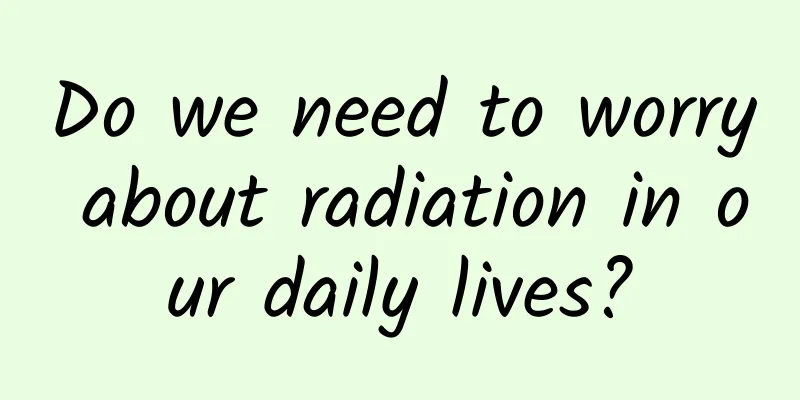After COVID-19, I "felt stupider". Do you also have "brain fog"? How to relieve it? See here!

|
Recently, some patients said that they felt tired, their concentration decreased, and even "felt stupid" after "Yang Kang", "Is it 'brain fog'? How long will it last?" The topic of "brain fog" once topped the hot search list, sparking discussion among netizens. Image source: Internet 01 Experts: No research has yet been able to clarify The causal relationship between COVID-19 and brain fog "After recovering from the COVID-19 infection, I feel like my reaction is a bit slow." On January 1, Ms. Sun from Chaoyang District, Beijing, told reporters, "When I'm working, I have to deliberately control my concentration. Yesterday at noon, I actually ordered two takeouts. I feel like I've become stupid." Copyright image, no permission to reprint Wang Gongqiang, chief physician of the Department of Neurology at the Affiliated Hospital of the Institute of Neurology of Anhui University of Traditional Chinese Medicine, told reporters that in fact, "brain fog" is not a medical or scientific term, but a description of a feeling that cannot be described as a symptom. After recovering from COVID-19, most of the "brain fog" symptoms will gradually ease. Wang Gongqiang told reporters: "Long before the emergence of the new crown, 'brain fog' has been used to describe the decreased attention and executive dysfunction that occurs in conditions such as chronic fatigue syndrome. It mainly includes one or more manifestations such as slow thinking and reaction, blurriness, confusion, mental fatigue, lack of concentration, or inability to concentrate on doing one thing." "At present, there is no research that can clearly determine the causal relationship between COVID-19 and 'brain fog'. But we can speculate that the physical and mental fatigue and weakness caused by COVID-19 infection will also cause us to have symptoms of 'brain fog' to a certain extent," said Wang Gongqiang. 02 How to relieve Symptoms of "brain fog" after COVID-19 Wang Gongqiang gave a few tips: Take some dietary supplements reasonably , such as GPC (glycerocholine). Secondly, good sleep, a proper diet and scientific exercise can improve memory and other "brain fog" symptoms. It is necessary and very important to get vaccinated before infection, build muscle and reduce fat , receive timely antiviral treatment after infection, drink enough water, increase protein intake, and get enough sleep and rest. Copyright image, no permission to reprint "Even if your learning and work efficiency decreases after you recover from COVID-19, don't worry too much about becoming 'stupid.' Most 'brain fog' will gradually ease within 1 month to 1 year," said Wang Gongqiang. 03 After Yangkang 9 residual symptoms are relieved in this way Source: Beijing Daily If you have questions about the coronavirus Especially those who hope to get analysis and answers to rumors and rumors related to the epidemic Please leave us a message The cover image and the images in this article are from the copyright library Reproduction of image content is not authorized |
<<: Is the spacecraft online? The "Clairvoyance" tracking and control radar reports
>>: What? The upcoming Lunar Year of the Rabbit has 384 days
Recommend
Competitive analysis of Keep, Hot Fitness, and FitTime (yellow)
In 2016, the State Council issued a national fitn...
How to do Valentine's Day marketing? Here are 6 tips for you!
Is Valentine’s Day Marketing Important? This time...
Google Talk, once a favorite among programmers, will be shut down next week
Google Talk, which was once very popular among pr...
Product Operation: How to cold start a product? Share 4 steps!
The product has just been launched and needs a co...
Tesla: In 2023, Tesla will produce 1,845,985 new cars and its cumulative revenue will reach US$96.77 billion
According to media reports, Tesla's previousl...
The Third Session of the 13th National People's Congress (NPC & NPC) in 2020 has been postponed! When will the meeting be postponed to?
On the afternoon of February 24, 2020, the closin...
Don’t do these 4 “eye-damaging” behaviors anymore! If you don’t pay attention, your eyes will really be “scrapped”…
As the saying goes, eyes are windows to the soul,...
No traffic from bidding promotion? You can do this!
Written in front There are two proverbs in Chines...
Stop saying that children have ADHD, it seems that adults also have it?
Speaking of "ADHD", it sounds like a di...
The sparrow is too small to have meat! A large number of home appliance dealers have disappeared
In recent years, it is with this mentality that a...
How much does it cost to attract investment for the Longnan women’s clothing mini program?
How much does it cost to attract investment in th...
Xishi Tongue: A Millennium Journey from a Beauty Legend to a Delicacy
The sashimi belongs to the phylum Mollusca, class...
Will being alone for a long time affect your social skills? See how many of these behaviors you meet
During the epidemic, many people have been quaran...
Brother Han teaches you how to use iOS - Experience sharing
[[148033]] This article mainly explains 4 questio...
China Passenger Car Association: In-depth analysis report on the national passenger car market in May 2024
This article is an authoritative in-depth market ...









